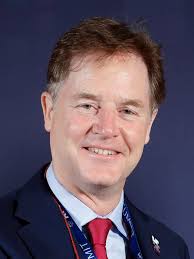The Political Journey of Nick Clegg

Introduction
Nick Clegg, a prominent figure in the UK political landscape, has played a crucial role in shaping modern British politics. As the leader of the Liberal Democrats and the Deputy Prime Minister from 2010 to 2015, Clegg’s influence extends beyond his party, impacting coalition governance and public policy.
Early Life and Political Career
Born in 1967 in Chalfont St. Peter, Buckinghamshire, Nick Clegg was educated at prestigious institutions, including Cambridge University and the University of Minnesota. His political career began after joining the Liberal Democrats in the 1990s, where he quickly rose through the ranks. In 2005, Clegg was elected as the Member of Parliament for Sheffield Hallam, marking the beginning of his influential journey within the party.
Deputy Prime Ministership
In the 2010 general election, the Liberal Democrats forged a coalition with the Conservative Party, leading to Clegg’s appointment as Deputy Prime Minister. During his tenure, he championed several key policies, including reforms in education and a focus on environmental issues.
However, his time in office was not without controversy. The decision to raise university tuition fees sparked significant backlash, leading to protests and a decline in the party’s popularity. Despite these challenges, Clegg remained a key figure in advocating for civil liberties and social reforms.
Post-Political Career
After stepping down as an MP in 2015, Clegg transitioned to the corporate world. He joined Facebook (now Meta) as Vice-President of Global Affairs and Communications, where he continues to influence significant global discussions surrounding technology and policy.
Conclusion
Nick Clegg’s journey from a young politician to a key player in both British politics and the tech industry illustrates the evolving nature of public service and advocacy in contemporary society. As debates around technology, privacy, and governance intensify, Clegg’s insights and experiences remain relevant. His continued involvement in global affairs prompts reflections on the responsibilities of leaders in a rapidly changing world, suggesting that the lessons of his political career may inform future policymaking.
